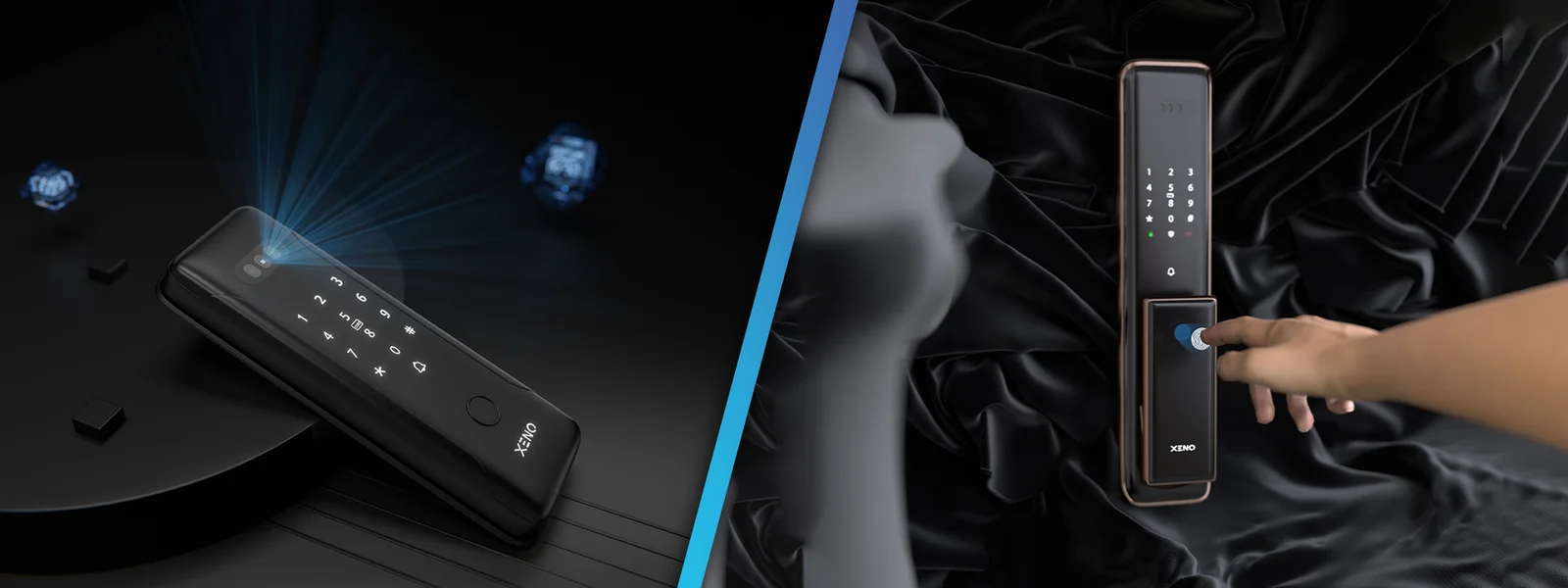
Face Recognition Locks vs Fingerprint Locks: Which One Suits Your Home?
When upgrading your home security, smart locks are becoming a popular choice due to their convenience and advanced features. Among these, face recognition locks and fingerprint locks are two of the leading options. But how do you choose between them? Let’s break down the differences and see which one fits your home best.
Ease of Use
- Face Recognition Locks: These locks use facial recognition technology to identify and grant access based on your unique facial features. No need to carry keys, fobs, or even touch the lock itself. Simply approach the door, and it unlocks automatically. This is especially convenient when your hands are full.
- Fingerprint Locks: Fingerprint locks require you to press your finger onto a sensor to unlock the door. It’s a quick process and works well for those who prefer tactile confirmation of access.
- Verdict: Face recognition locks offer more hands-free convenience, while fingerprint locks provide quick, physical access.
Security
- Face Recognition Locks: These locks are highly secure as they use 3D imaging or infrared technology to map your face in detail. The latest models can detect spoofing attempts, such as using photos or videos, and will only unlock for the genuine user.
- Fingerprint Locks: While fingerprint technology has improved over the years, it’s still possible for smudged or dirty sensors to reduce accuracy. However, newer models are much better at recognizing prints even in less-than-ideal conditions.
Verdict: Both offer strong security, but face recognition locks have the edge in preventing tampering.
Family & Guest Access
- Face Recognition Locks: If you have multiple family members or regular guests, face recognition locks allow for easy access by simply scanning their faces. You can add or remove users as needed, and some models even allow for temporary access codes.
- Fingerprint Locks: Similarly, fingerprint locks let you register multiple users’ fingerprints. However, adding guests or new family members may require physical access to the lock and registering their fingerprints manually.
Verdict: Face recognition is more convenient for managing a larger household or temporary guests.
Weather & Environmental Resistance
- Face Recognition Locks: Extreme sunlight or darkness might affect the accuracy of face recognition technology. However, many newer models come equipped with infrared sensors that work well in low-light conditions.
- Fingerprint Locks: Fingerprint sensors may struggle if your fingers are wet, dirty, or oily, which could be an issue in humid climates like Singapore. However, many are designed to resist such issues.
Verdict: Face recognition locks might have a slight edge in varying environmental conditions due to infrared tech, but modern fingerprint locks are generally reliable.
Price
- Face Recognition Locks: As they use more advanced technology, face recognition locks tend to be more expensive. This is an investment for those who prioritize convenience and cutting-edge security.
- Fingerprint Locks: These are usually more affordable and provide a good balance of security and practicality, making them a popular choice for homeowners.
Verdict: If budget is a concern, fingerprint locks may offer more value for money, while face recognition locks are worth it for those seeking premium features.
Which One Should You Choose?
- Choose Face Recognition Locks if: You want the latest technology, hands-free access, and a more futuristic security solution for your home. Ideal for larger households, tech enthusiasts, or those with frequent visitors.
- Choose Fingerprint Locks if: You’re looking for a reliable, affordable, and quick solution that offers solid security. Perfect for those who prefer a more tactile experience and are comfortable with a slightly more manual process.
Both options are great for boosting home security, but the right choice depends on your preferences, lifestyle, and budget. Whichever you choose, smart locks are a significant step toward making your home safer and more convenient.
